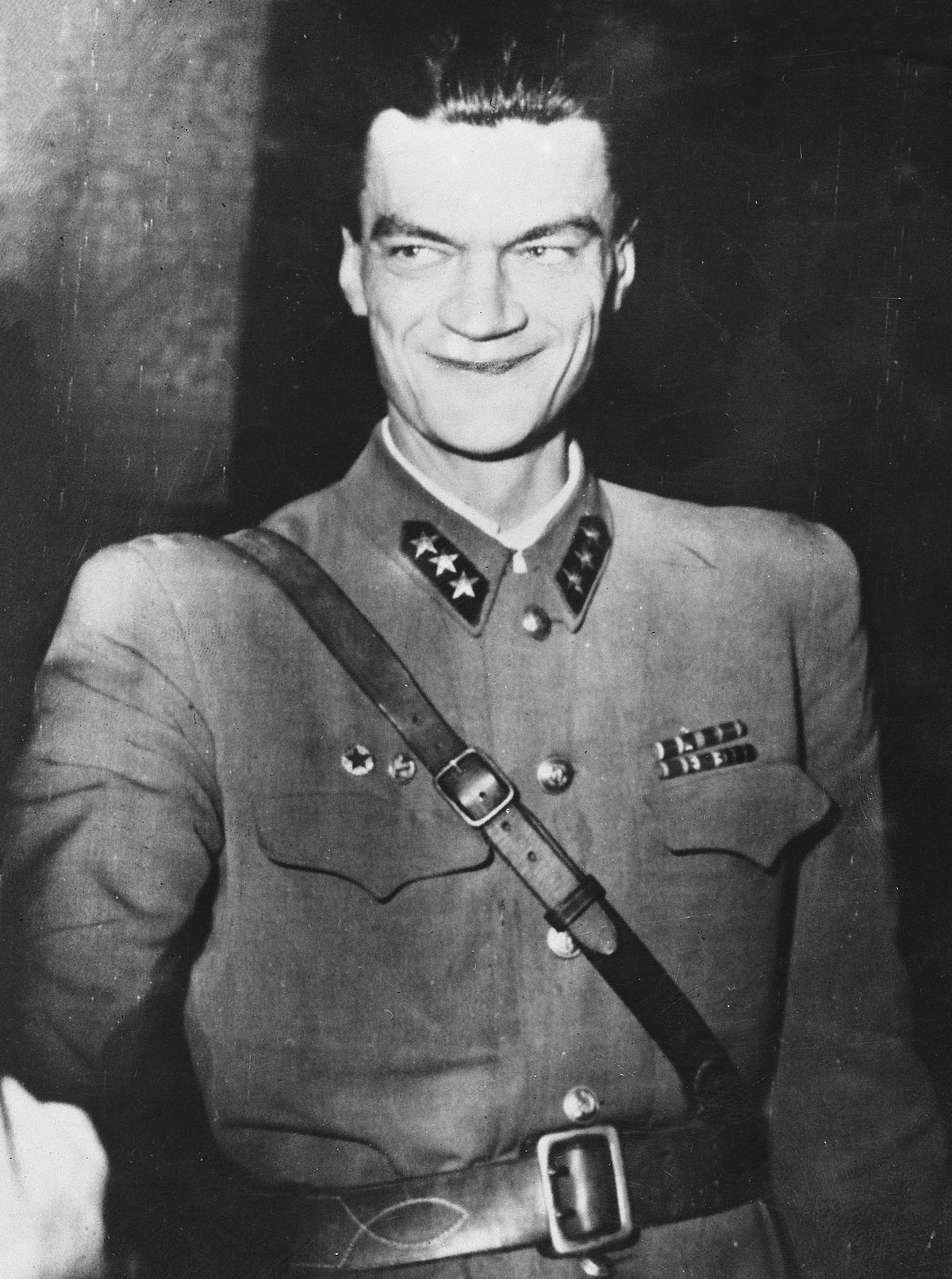Pál Maléter (4 September 1917 – 16 June 1958) was the military leader of the
1956 Hungarian Revolution.
Maléter was born to Hungarian parents in
Eperjes, a city in
Sáros County, in the northern part of
Historical Hungary, today Prešov,
Slovakia. He studied medicine at the
Charles University,
Prague, before moving to
Budapest in 1938, going to the military academy there. He fought on the
Eastern Front of
World War II for the Axis, until captured by the
Red Army. He became a communist, trained in
sabotage, fought against the Germans in Transylvania and was sent back to
Hungary, where he was noted for his courage and daring. In 1945 he joined the
Hungarian Communist Party.
In 1956 he was a
Colonel and served with the
General Staff in
Budapest when during the Hungarian Uprising he was sent to relieve a unit at the Kilian barracks with some tanks and a company of officer cadets. However, only Maléter's tank arrived at the barracks, and with the permission of his superiors, he agreed to a cease-fire with the insurgent groups in the area. Later (the exact time of this is disputed) he switched to the insurgents' side, helping them to defend the Kilian Barracks against Soviet troops. He was the most prominent member of the Hungarian military to change sides, allying himself with the insurgents, rather than with
Ernő Gerő's communist government.



